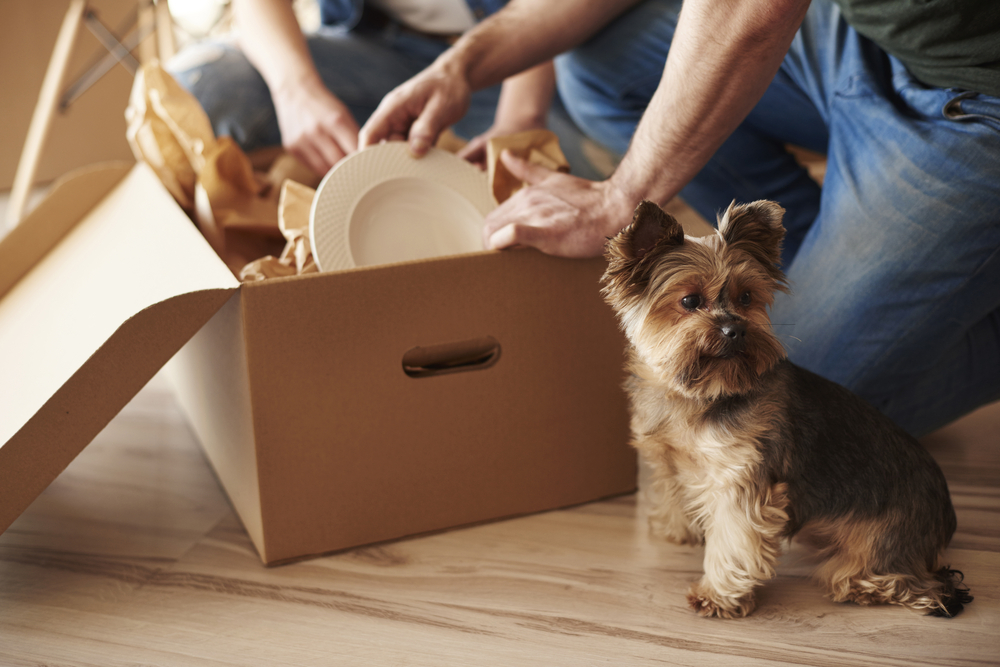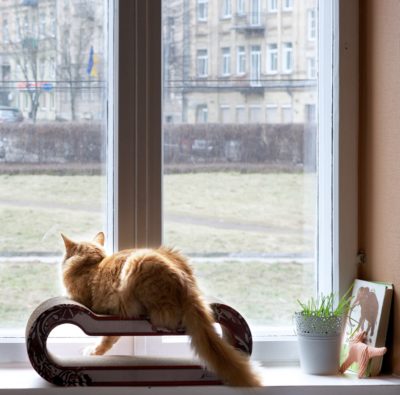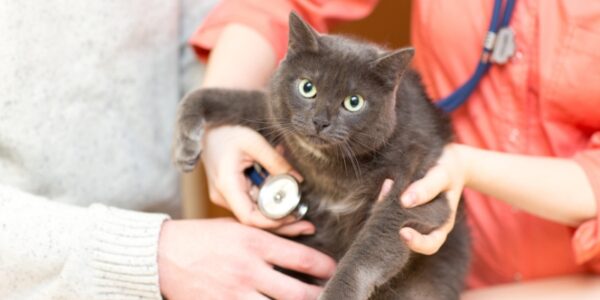
How to Settle Your Pet into a New Home
Moving to a new house is a stressful experience for all members of the family, but it can be especially hard on pets as the majority of their life is spent in the home and look upon it as their territory. Here are a few ways you can minimise the stress your pet may experience when moving and help them settle into their new home.
In the lead-up
- Take your dog to visit the new property if possible so they can familiarise themselves with the house and the yard. Giving them a treat or feed when you are there will also help encourage positive associations.
- Update your pet’s microchip information with your new address.
- Register your pet with the new council, or update their details if you are staying in the same council area.
- Ask your current veterinarian for your vet’s vaccination certificates, medical information and any prescriptions so your new vet has a complete record of your pet’s health history.
On moving day

On the day you move, it’s best to have your pets minded elsewhere to minimise their anxiety, ensure they are not going to trip up the movers, or escape whilst the furniture is being moved into the truck.
Once you arrive
- Take your dog for regular walks around your new neighbourhood so they can familiarise themselves with their new surrounds. Don’t let them off the lead for the first week or so.
- Confine your outdoor cat to the new house for at least the first three weeks and then slowly introduce them to their new surrounds with short, supervised trips outdoors. This way your cat will be comfortable in their new home before they go exploring.
- Keep the same bedding, toys and bowl your pet had at your previous home and avoid washing their bedding for a few weeks after you move so your pet has something familiar and comforting.
- Stick to the same feeding, walking and grooming routine you had previously to help your pet feel at home.
- It’s not unusual for animals to be anxious and go off their food after moving home but they should go back to their regular eating habits after a few days. If your pet’s appetite doesn’t pick up in a week, take them to the vet.
Vets in Cranbourne has plenty of experience helping pets and their owners move to a new house. If your pet is prone to anxiety, talk to us prior to the move and we will be able to provide you with some care tips and perhaps even some medication to ensure a smooth transition. If you have recently moved to the Cranbourne area and have noticed your pet has continued to display signs of distress and anxiety after the first few weeks of the move (such as escaping, destructive behaviours, excessive barking, hiding or obsessive habits for dogs and excessive fur pulling and grooming for cats) our behavioural experts will work to find a solution that’s tailored to your pet’s unique needs and circumstances. Book an appointment online or by calling (03) 5995 3444.



